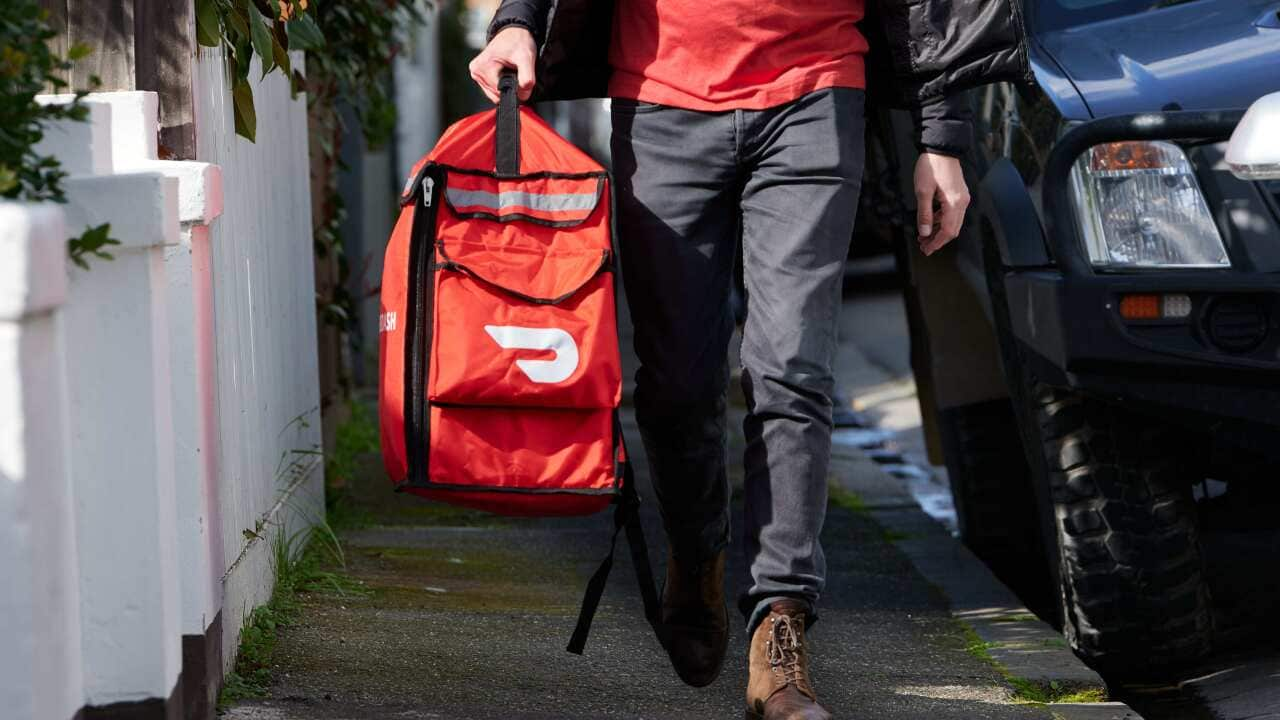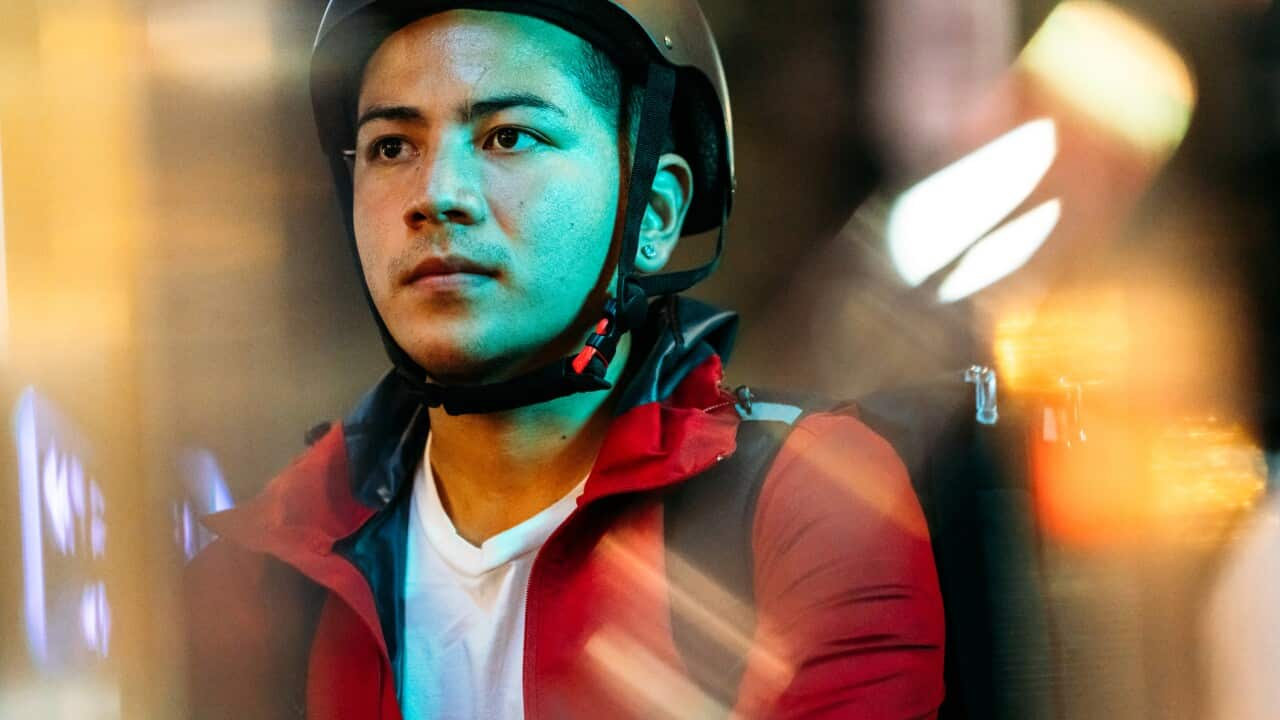You've ordered a meal through a popular delivery app and are waiting for your driver to drop it off, only for the delivery to be cancelled.
It's a frustration many have experienced and now — and are pointing the finger at one another.
Mohammed owns Akawi Lebanese Cuisine and Seafood in the Sydney suburb of Lakemba and said he faces issues with delivery drivers once or twice a week on average.
He said some drivers accept the delivery offer from the company they deliver for, go near the restaurant, and indicate in the courier app that they have picked up the food.
A short time later they confirm in the app that they delivered the food, but the food was never picked up for delivery from the restaurant.
This means the driver gets paid for a delivery that never happened, thereby scamming the delivery service provider, and ultimately affecting the customer.

There is something in the food delivery industry called multi-apping, where a driver who works with more than one delivery service provider accepts orders from multiple companies at the same time. Source: AAP / Dan Himbrechts
"The map on my tablet, [it shows] the order has been delivered but I still have the order here," Mohammed said. "So the driver doesn't want to do his job, maybe he's got better job; [so] he marks it as delivered."
Mohammed said he has noticed repeated problematic behaviour among certain drivers and has reported them, but the delivery service providers take little, if any, action.
"They say they try to fix it, to find another driver to pick up the food, or to find out who is the driver so they can call him and tell him what the situation is," he said. "At the end they say, 'don't worry about it, we will refund the money to the customer,' and that's it."
A multi-apping problem?
There is a practice in the food delivery industry called multi-apping, where a driver who works with more than one delivery service provider accepts orders from multiple companies at the same time.
Uber, Menulog and DoorDash all allow the practice, according to their driver agreements.
Hussein Faraj, who owns three restaurants in western Sydney, has all but stopped using delivery service providers.
Faraj said this was because orders were arriving cold, with missing items, or not at all — issues he put down to multi-apping.
He said that, instead of blaming the delivery platforms, customers gave his restaurants bad reviews on Google.
"They (a driver) will take the order, they will say they're waiting for the order at the business, when they wouldn't be there at all," Faraj said.
"They will pick it up 15 minutes, 20 minutes later; the food goes very cold. By the time they get it to the customer, we get bad reviews."
By accepting deliveries from different apps, drivers have less downtime between orders and therefore earn more.
A driver who spoke to SBS News but chose not to give his name has completed more than 7,000 deliveries for UberEats.
He said multi-apping can occur without causing issues if drivers accept only one delivery at a time.
He also said some restaurants print out dockets that signal to the delivery service provider that the order is ready when it's not.
This leads to drivers having to wait for an excessively long time and, in some cases, means they have to cancel the delivery, he said.
"We stay there an extra 15 to 20 minutes ... we're not gonna get that extra pay because they already print out the docket," he said.
The reality for some, especially those on electric scooters and bicycles, is that .
In early November, Canberra delivery driver Utsav Bhattarai shared his experience with the .
"I do not have any flexibility in terms of accepting orders, do not have any flexibility in terms of where I want to go and where I do not want to go," he said.
"It's paying me $20 and even less than that an hour without super[annuation], without any personal leave, without any sick leave, nothing.
"We just want our basic minimum wage."
SBS News contacted Uber for this story but the company declined to comment.
DoorDash and Menulog did not respond to a request for comment.











